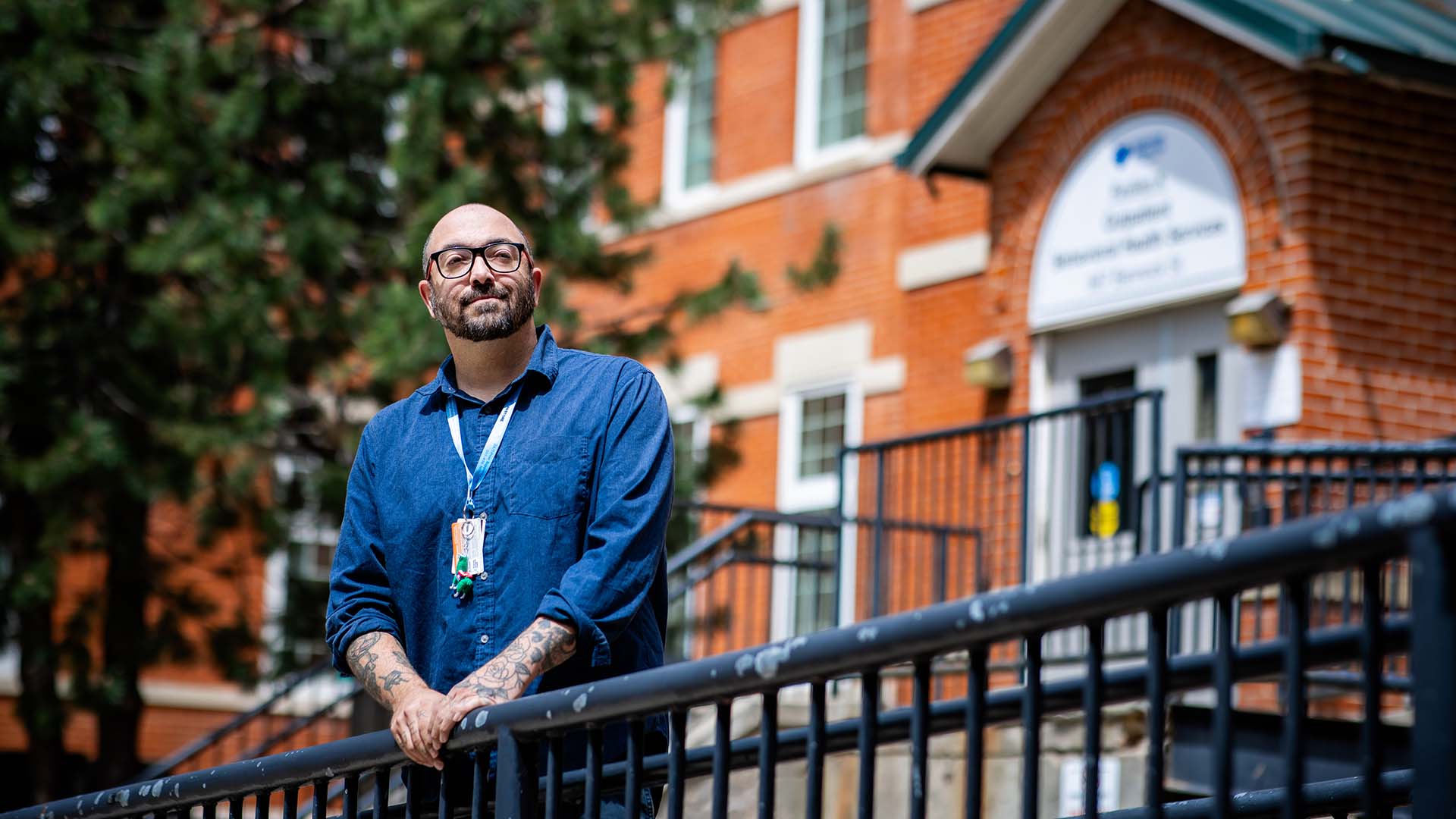Flu infections are at historic lows. Here’s why
Fears of a “twindemic” – a confluence of Covid-19 and influenza – haven’t materialized, thanks to preventive measures aimed at slowing the spread of the coronavirus.

During the 2019-20 flu season, Ruben Zorrilla, M.D., medical director of the Health Center at Auraria, would regularly review the number of influenza cases each week. Some 400,000 people were hospitalized with the flu that season, which starts in October and peaks between December and February, while 22,000 died from the virus, according to statistics from the Centers for Disease Control and Prevention (CDC).
While he couldn’t give definitive numbers speaking to how many flu cases the Auraria Campus typically sees during normal seasons, Zorrilla said there were periods where he would see two to three flu cases a day out of 10 to 15 patients who visited the Health Center at Auraria daily. But this flu season, Zorrilla hasn’t treated any patients for the flu.
In fact, the flu has been virtually nonexistent this season, according to CDC data. Between last October and February, the CDC recorded fewer than 1,500 flu cases in the U.S. and only 165 flu-related hospitalizations. The data are a relief for doctors and public-health officials who warned last summer that the U.S. could face a “twindemic” – a confluence of Covid-19 and the flu.
Preventive measures aimed at slowing the spread of the coronavirus have helped keep flu cases low this season, say numerous experts on the Auraria Campus and at Metropolitan State University of Denver.
“I think what we’ve learned is to be more forgiving in terms of sick days and when we’re ill,” Zorrilla said. “We’ve learned it’s OK to wear a mask. I’m certain I’m not alone in this opinion where it was strange to us to see other countries wearing masks (before the pandemic). I think they were on to something.”

Other factors caused by the pandemic have also contributed to low flu numbers, such as children being out of schools and offices and other close-contact venues being shuttered, said Erin Seedorf, Dr.P.H., an assistant professor in MSU Denver’s Department of Health Professions.
“We’ve known that a lot of these prevention measures can be effective (in slowing the spread of the flu), but they hadn’t been implemented at such a large level,” said Seedorf. “Those practices of physical distancing and mask-wearing and hand sanitation we know are critical to stopping the spread of any virus. Because we were already doing that (ahead of the flu season), there was a really big impact.”
There’s another critical lesson the public can take away from this year’s tame flu season, said Sheryl Zajdowicz, Ph.D., a professor in MSU Denver’s Department of Biology: Vaccines work.
More than 193 million doses of flu vaccine had been distributed in the U.S. by mid-January – the highest number of flu doses distributed in the country during an influenza season.
The benefits of getting a flu vaccine include preventing people from getting sick with the flu, reducing the severity of the disease, reducing the number of hospitalizations associated with flu and reducing morbidity and mortality associated with influenza illnesses, Zajdowicz said.
“Vaccination is one of the greatest preventatives that we have for limiting the spread of infectious disease. Each year, the flu vaccine is designed to protect against the three or four influenza viruses (depending on the form of the vaccine) that are predicted to be the most common during an upcoming flu season,” she said.
As Covid-19 vaccines continue to be distributed, health experts such as Anthony Fauci, M.D., the country’s top infectious-disease doctor, said last month that the United States will be approaching normalcy by the end of the year. And as people start to go back to pre-Covid habits and behaviors, there’s a thought by some medical professions that flu cases might spike in upcoming seasons.
“We’ve learned now about variants or strains that we’ve seen with Covid, and that also happens with the flu,” said Zorrilla. “The flu is notorious about being a quick changer, and that’s why we have to update the vaccine every year.”
Doctors and public-health officials have expressed concerns that the dramatic drop in the flu now might come back to bite us next flu season. That’s because part of our protection from the virus is the antibodies developed by those who are infected and recover, Zorrilla said.
“When the flu came around again, they wouldn’t get sick,” he said. “The strains (of the flu) are floating by us because we got our masks and are social-distancing. Not as many people are carrying the antibodies. We simply won’t be immune to these certain strains.”
The Health Center at Auraria continues to offer free flu vaccinations to all Auraria Campus students and staff Monday through Friday. Appointments can be made by calling 303-615-9997.







